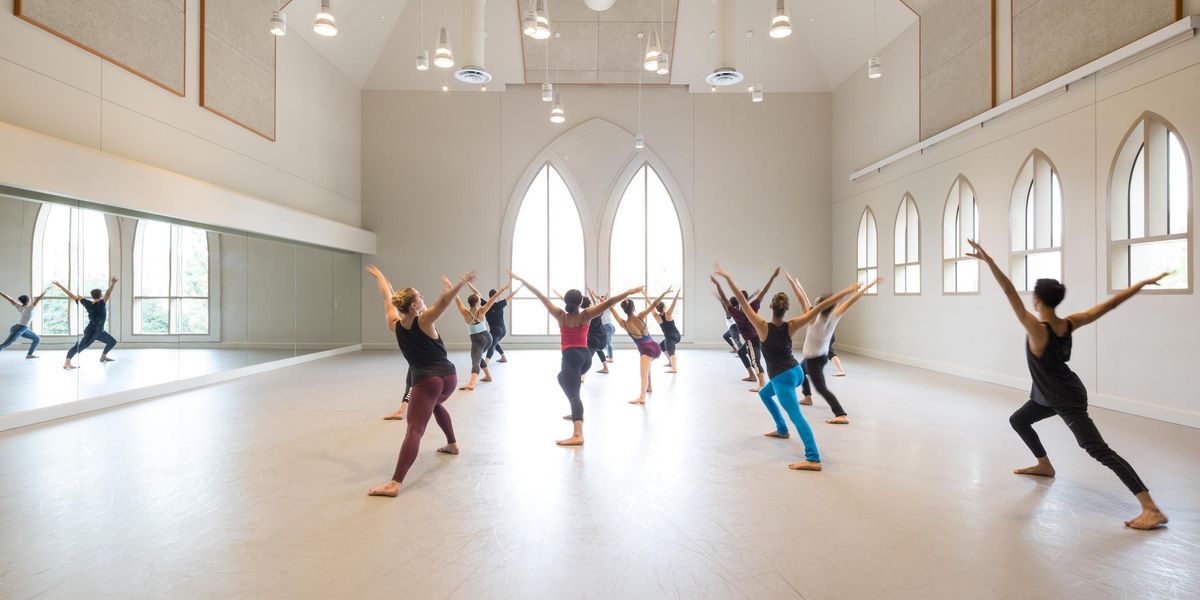Making It Happen: Hip Hop Goes to College
It’s rare to find hip hop in the course listings of liberal arts colleges, compared with more standard offerings like ballet and modern dance. But Jennifer Weber, the director and choreographer of Decadancetheatre, breaks the mold. Her classes at Mount Holyoke College throw hip hop into the academic world. Emphasizing the history of the form and highlighting women’s roles in hip hop culture, Weber proves that there’s much more to the genre than music video backup dancing.
Weber is no stranger to the academic realm; she discovered hip hop in the Philadelphia club scene while attending the University of Pennsylvania, and her passion grew during a semester abroad in London. “I took tap, jazz, and ballet at a local studio growing up, but I wasn’t very good at it,” she says. “Hip hop works well with the way my body naturally moves.” After graduation, Weber was hired to choreograph for a pop star, but it wasn’t a perfect fit. “I found that when you work in the commercial industry, you have so little control over what you’re doing,” she says. “I really wanted to create long-form hip hop dance theater.”
So Weber started Decadancetheatre, a New York–based troupe of six women that performs concert dance pieces using only hip hop vocabulary. The 2004 debut of Decadancetheatre vs. The Firebird—A Hip Hop Ballet, a remix of the classic Stravinsky ballet for the New York International Fringe Festival, put Deca on the map. The company tours worldwide and leads workshops and master classes. “So much of what people see of hip hop is one tiny slice,” says Weber. “We really focus on showing the range of emotion, the use of narrative—we want to see how far we can push hip hop out of its box.”
Weber’s classes (beginner and intermediate hip hop) challenge students to push their own limits. “I come from a classically trained background, and I was absolutely petrified the first time I took Jenn’s class,” says senior Jennifer Cobb, a double major in dance and French. But she stuck with it for the next three years, and found that Weber’s classes helped develop her artistry. “It improved my sense of weight and groundedness, and it totally changed my movement vocabulary and how I improvise. I’ve really expanded as a mover.”
Weber structures her courses to explore the foundations of hip hop, breaking down basic styles including popping, locking, and breaking. The classes also address the evolution of the genre, and Weber strives to give her students a sense of its cultural impact. “I don’t want people thinking that hip hop is just a cool move they see in a music video,” she says. “I want them to understand its cultural history and that it’s a social force.”
Popular versions of hip hop’s history don’t always account for the women who have helped shape the form. So the leader of an all-female company, who teaches at an all-female college, is careful to point out powerful women in the field—even if they’re not specifically dancers. “Hip hop would not have grown without the photographer Martha Cooper,” she says. “And the first article ever written about hip hop was by Sally Banes for the Village Voice in 1981—which was accompanied by Cooper’s images.”
Cobb says that Weber’s class fills a gap in the academic world: “There’s a lot of stigma attached to hip hop, and she’s an advocate for expressing how it can be more than the hyper-sexualization of women—which is how it’s normally perceived.” Yet Weber’s goals remain the same, no matter where she’s teaching. “I hope my students leave class feeling more confident,” she says, “inspired to take their own movement, push it in new directions, and find new ways to create.”
Jennifer Weber. Photo by Karli Cadel, Courtesy Weber.




